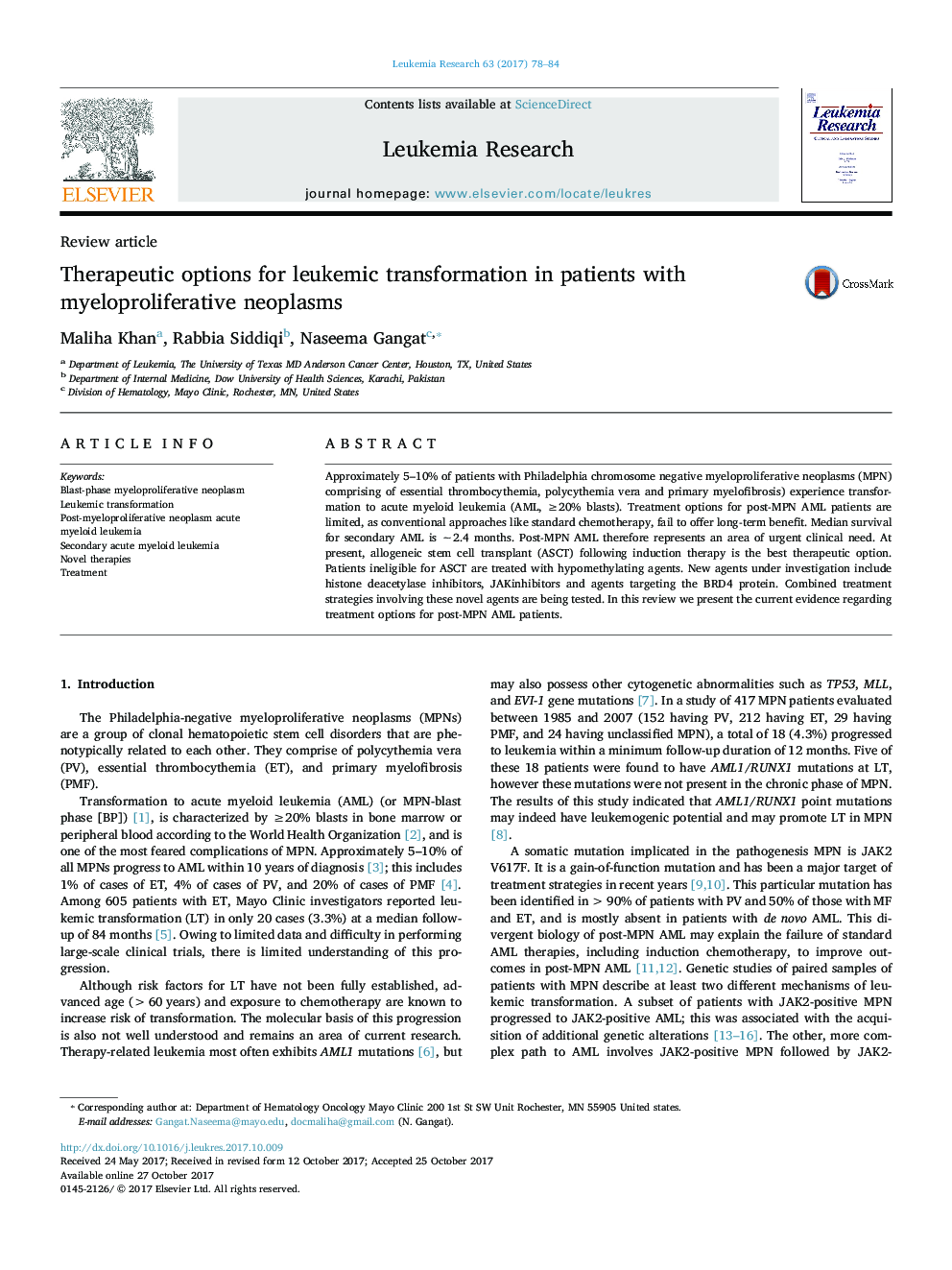| Article ID | Journal | Published Year | Pages | File Type |
|---|---|---|---|---|
| 8453418 | Leukemia Research | 2017 | 7 Pages |
Abstract
Approximately 5-10% of patients with Philadelphia chromosome negative myeloproliferative neoplasms (MPN) comprising of essential thrombocythemia, polycythemia vera and primary myelofibrosis) experience transformation to acute myeloid leukemia (AML, â¥20% blasts). Treatment options for post-MPN AML patients are limited, as conventional approaches like standard chemotherapy, fail to offer long-term benefit. Median survival for secondary AML is â¼2.4 months. Post-MPN AML therefore represents an area of urgent clinical need. At present, allogeneic stem cell transplant (ASCT) following induction therapy is the best therapeutic option. Patients ineligible for ASCT are treated with hypomethylating agents. New agents under investigation include histone deacetylase inhibitors, JAKinhibitors and agents targeting the BRD4 protein. Combined treatment strategies involving these novel agents are being tested. In this review we present the current evidence regarding treatment options for post-MPN AML patients.
Related Topics
Life Sciences
Biochemistry, Genetics and Molecular Biology
Cancer Research
Authors
Maliha Khan, Rabbia Siddiqi, Naseema Gangat,
